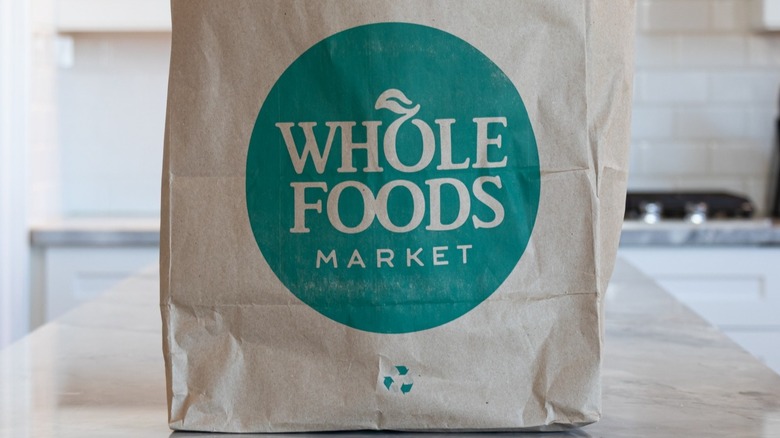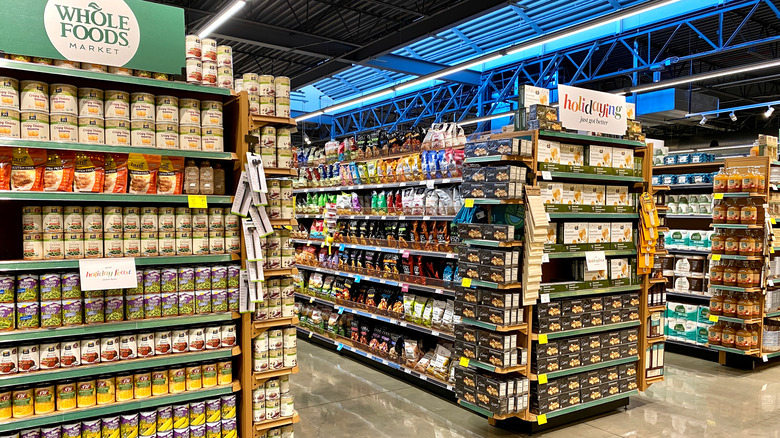How Whole Foods Is Throwing New Brands Under The Bus
When Whole Foods first opened its doors in Austin, Texas back in 1980, its intention was to sell natural foods in a "supermarket format." Today, it's grown into a 500-plus store chain located in both the U.S. and the UK. Even before the grocery store was acquired by Amazon, it was known as an upscale grocery store, scoring it the nickname "Whole Paycheck" shortly before the takeover — a nickname that's been hard for it to shake despite Amazon lowering the prices of some products.
According to Statista, the company's net income reached lows between 2017 and 2020 but 2021 saw a jump back to normalcy with a fiscal year growth of over 21%. However, despite this, Whole Foods has been increasing its prices on some brands over the past few months. Business Insider suggests that this may indicate a "change in strategy," especially as the increases are beyond expected rises in inflation.
However, the price increases are purely the result of the grocery store's decision, and not a choice of the brands themselves — which is likely not a known fact to the consumers purchasing these brands.
Brands are afraid of losing their reputation
In August, an Amazon spokesperson told CNBC, Whole Foods' goal was to "make high quality, organic foods more affordable and accessible for everyone." The store was said to have created its own private label, "365," to bring costs down as well as operating warehouse stores for online orders that aren't open to the public. However, the raise in prices on other private labels, some of which are new, has the owners of those brands worried. Sarah Delevan, a food brand consultant, told Insider, "Consumers don't know that it's not the brand that's raising the price. There is a negative feeling towards a brand that's increasing their shelf price $2 per unit."
The consultant suggested that, not only may customers look elsewhere for the same product, but these increases may damage the reputation of emerging food brands who sell their products to Whole Foods in order to "attract new customers and grow distribution," via Insider. Nishant Shrikhande, a senior analyst at Kantar told Insider that the grocery store may be "learning to live with its 'whole paycheck' image."
With the current inflation rate, it seems this can't be good for either brands or customers.

